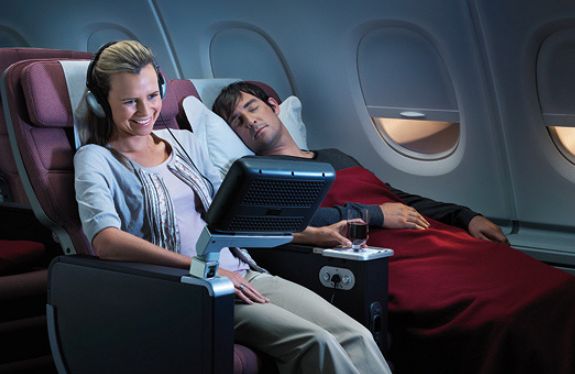really be stressful, especially because you basically have remained in the same
spot for hours until the flight is over. There are, however, some helpful
survival tips to help offset some of the stressful and draining effects of long
flights.
Rest Well
Before Boarding the Plane
If you’re going to have a long flight, it is
best to rest well beforehand. Don’t make the mistake of thinking you’ll be able
to have needed rest during the flight because airplane seats can get really
uncomfortable on long flights. Some might think it might be best to get on a
‘long-haul flight’ extremely tired so they can sleep through the flight, but
they find out, to their dismay, that many unforeseen circumstances interfere
with this plan.
Secure Your Belongings
Some shifty and
unscrupulous passengers actually wait for you to fall asleep to make a move on
your luggage. It is therefore best to secure your belongings well (especially
the valuable ones) by keeping them deep inside a properly zipped bag (so it will
be hard for the items to be pick-pocketed without you noticing) and by keeping
items like passports, credit cards and cash in a money belt under your
clothes.
Get Sleep Aids
Invest in a good travel pillow to
relieve some pressure off your neck when trying to sleep on an airplane. You can
also get a sleep mask and a pair of earplugs to block out every disturbance and
garner a better quality of sleep for yourself. These little luxuries can really
transform your air travel and make long flights less tedious. In addition, try
to avoid taking sleeping pills on long flights because they’ll really just leave
you feeling ‘fuzzy’ and slow when you land.
Move Around The
Plane
Try to avoid sitting on the same spot throughout the journey. Even
if you don’t have an urge to use the toilet all through the flight, move around
on the plane to help stretch your legs and other parts of your body. You should
also move around (mainly by walking on the aisle and doing some light stretches)
to keep circulation flowing in your legs and to avoid deep vein thrombosis
(DVT). Moving around can also make it easier for you to fall asleep on the plane
and have some healthy rest.
Avoid Taking Alcohol or Caffeine-Heavy
Beverages Before/During the Flight
The chances of becoming dehydrated on
long flights is high, and alcohol and caffeine-heavy beverages only make it
worse. They increase effects of jet lag on your body and increases your jet lag
recovery time. Your body functions better when it’s hydrated, so you should
drink lots of water rather than alcohol or caffeine-heavy beverages, to help you
offset the effects of jet lag.






